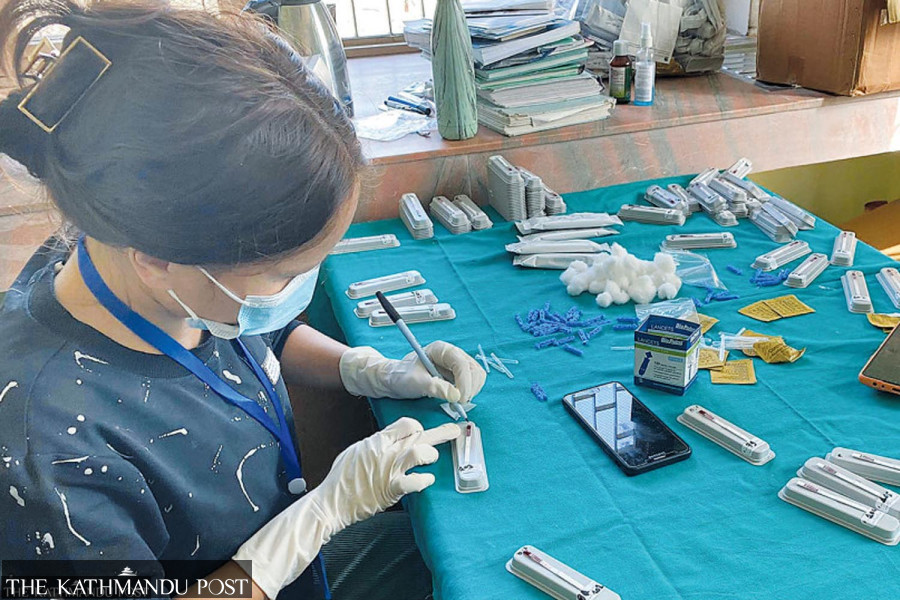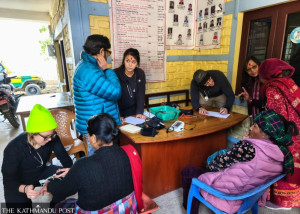Health
Anti-elephantiasis jabs being given in 7 districts
The two-week-long campaign will be launched in Feb-March.
Post Report
The Epidemiology and Disease Control Division said that it is preparing to launch a mass drug administration drive in seven districts where the lymphatic filariasis disease, known more commonly as elephantiasis, is endemic.
The two-week-long campaign will be launched in six districts of the Tarai region—Jhapa, Dhanusha, Mahottari, Sarlahi, Rautahat, and Kapilvastu—and in Rasuwa in February-March.
This is the second time this year that authorities are launching a campaign against the disease in the mountainous Rasuwa district.
“Healthy people above two years will be given diethylcarbamazine, albendazole and Ivermectin,” said Dr Gokarna Dahal, chief of the Vector Control Section at the division.
Lymphatic filariasis is a mosquito-borne parasitic disease caused by filarial worms transmitted by different species of mosquitoes, including Culex, Anopheles, and Aedes.
It is the second major infectious disease after leprosy that causes permanent and long-term disability in Nepal.
Doctors say the disease may be acquired during childhood and its visible manifestation may occur only later in life. The disease can lead to temporary or permanent disability, pain, and social stigma.
The World Health Organisation has identified the disease as a major public health problem, with an increasing prevalence worldwide. Nepal is one of the 73 countries in the world where lymphatic filariasis is endemic.
Health workers as well as female community health volunteers will also reach out to every household to make sure that no one is deprived of antiparasitic drugs.
Last year, antiparasitic drugs were administered in 15 districts. According to Dahal, some districts—Morang, Bara, Lamjung, Parbat, Baglung, Banke, Dang and Kailali, which were endemic to elephantiasis earlier—passed the threshold in a preliminary transmission survey, meaning they had halted the disease’s transmission rate.
The Health Ministry carries out a transmission survey every two years. Such a survey needs to be carried out thrice in six years and if all surveys show a halt in transmission rate, the country will be eligible to get disease elimination status.
The Ministry of Health and Population has started administering Ivermectin, an antiparasitic that has been included in the drug list of the mass drug administration campaign, after diethylcarbamazine and albendazole failed to yield desired results in some districts.
Dahal said that two two-year mass drug administration campaigns would be sufficient to stop the transmission rate when Ivermectin is used.
The government started a mass drug administration programme to eliminate lymphatic filariasis in 2003. Under the programme, healthy persons above two years of age in 63 districts were given diethylcarbamazine and albendazole.
So far, the disease has been eliminated from 70 out of 77 districts. In some districts, the programme has continued for the last 14 years.
The government had committed to eliminating lymphatic filariasis as a public health problem by 2020. However, the target could not be achieved due to low programme coverage in some districts.
The Health Ministry had extended the deadline to eliminate lymphatic filariasis to 2028. Later, it was postponed further to 2030.




 10.12°C Kathmandu
10.12°C Kathmandu













